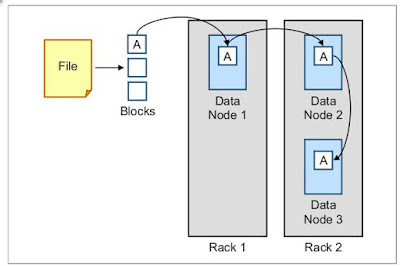Federated Learning: Decentralized Big Data Analytics for Privacy-Sensitive Industries
Introduction
Imagine harnessing the power of machine learning without compromising sensitive data. In privacy-sensitive industries like healthcare, the need for data security and confidentiality is paramount. Enter federated learning—a revolutionary approach to decentralized big data analytics. According to a report by McKinsey, federated learning could significantly enhance data privacy while enabling robust machine learning across distributed data sources. This article explores how federated learning works, its benefits, and its critical role in privacy-sensitive industries like healthcare.
Body
Section 1: Background and Context
Understanding Federated Learning:
Federated learning is a machine learning technique that allows models to be trained across multiple decentralized devices or servers holding local data samples, without exchanging the data itself. Instead of centralizing data, federated learning brings the model to the data source. The model is trained locally on each data source, and only the learned parameters (weights) are shared and aggregated to form a global model.
Role of Big Data in Federated Learning:
Big Data plays a crucial role in federated learning by providing vast amounts of diverse data from distributed sources. The decentralized nature of Big Data allows federated learning to leverage data from various locations without compromising privacy.
Section 2: Key Points
1. Enhancing Privacy and Security:
Federated learning is particularly beneficial for privacy-sensitive industries like healthcare, where data security is critical. By keeping data localized and sharing only model parameters, federated learning minimizes the risk of data breaches and ensures compliance with privacy regulations like HIPAA. According to a study published in Nature Medicine, federated learning can significantly improve data security in healthcare applications.
2. Improving Model Accuracy:
Federated learning leverages diverse data from multiple sources, enhancing the robustness and accuracy of machine learning models. By training models on localized data, federated learning captures variations and patterns unique to each data source, leading to more generalized and accurate predictions. A report by Google AI highlights how federated learning improves model performance in applications like predictive health analytics and personalized medicine.
3. Reducing Data Transfer Costs:
Traditional centralized machine learning requires extensive data transfer, which can be costly and inefficient. Federated learning reduces data transfer costs by keeping data localized and sharing only model updates. This is particularly advantageous for industries with large datasets and limited bandwidth. According to a study from IEEE, federated learning can significantly reduce data transfer costs in healthcare and other industries.
Section 3: Practical Tips and Examples
1. Implementing Federated Learning in Healthcare:
Healthcare providers can integrate federated learning into their data analytics systems to enhance privacy and improve model accuracy. By training models locally on patient data and sharing only model parameters, healthcare institutions can develop robust predictive analytics without compromising patient privacy. Companies like Owkin and NVIDIA Clara are pioneering federated learning solutions for healthcare applications.
2. Enhancing Data Security:
Organizations can use federated learning to enhance data security by minimizing data movement and keeping data localized. Implement encryption and secure aggregation techniques to protect model updates during transmission. Projects like TensorFlow Federated and PySyft offer tools and frameworks for implementing secure federated learning.
3. Reducing Operational Costs:
Industries with large datasets can leverage federated learning to reduce operational costs associated with data transfer. Implement federated learning frameworks to train models locally and aggregate updates centrally, minimizing data transfer expenses. Companies in finance, healthcare, and manufacturing can benefit from the cost-saving advantages of federated learning.
Conclusion
In conclusion, federated learning offers a transformative approach to decentralized big data analytics, enhancing privacy, improving model accuracy, and reducing data transfer costs. By leveraging federated learning, privacy-sensitive industries like healthcare can harness the power of machine learning without compromising data security. The integration of federated learning and Big Data provides a powerful tool for driving innovation and ensuring compliance with privacy regulations.
Embracing federated learning is essential for organizations looking to maximize the potential of machine learning while safeguarding sensitive data. Whether you are a healthcare provider, a data scientist, or a tech enthusiast, understanding and utilizing federated learning will be key to unlocking the full potential of decentralized big data analytics.




Comments
Post a Comment